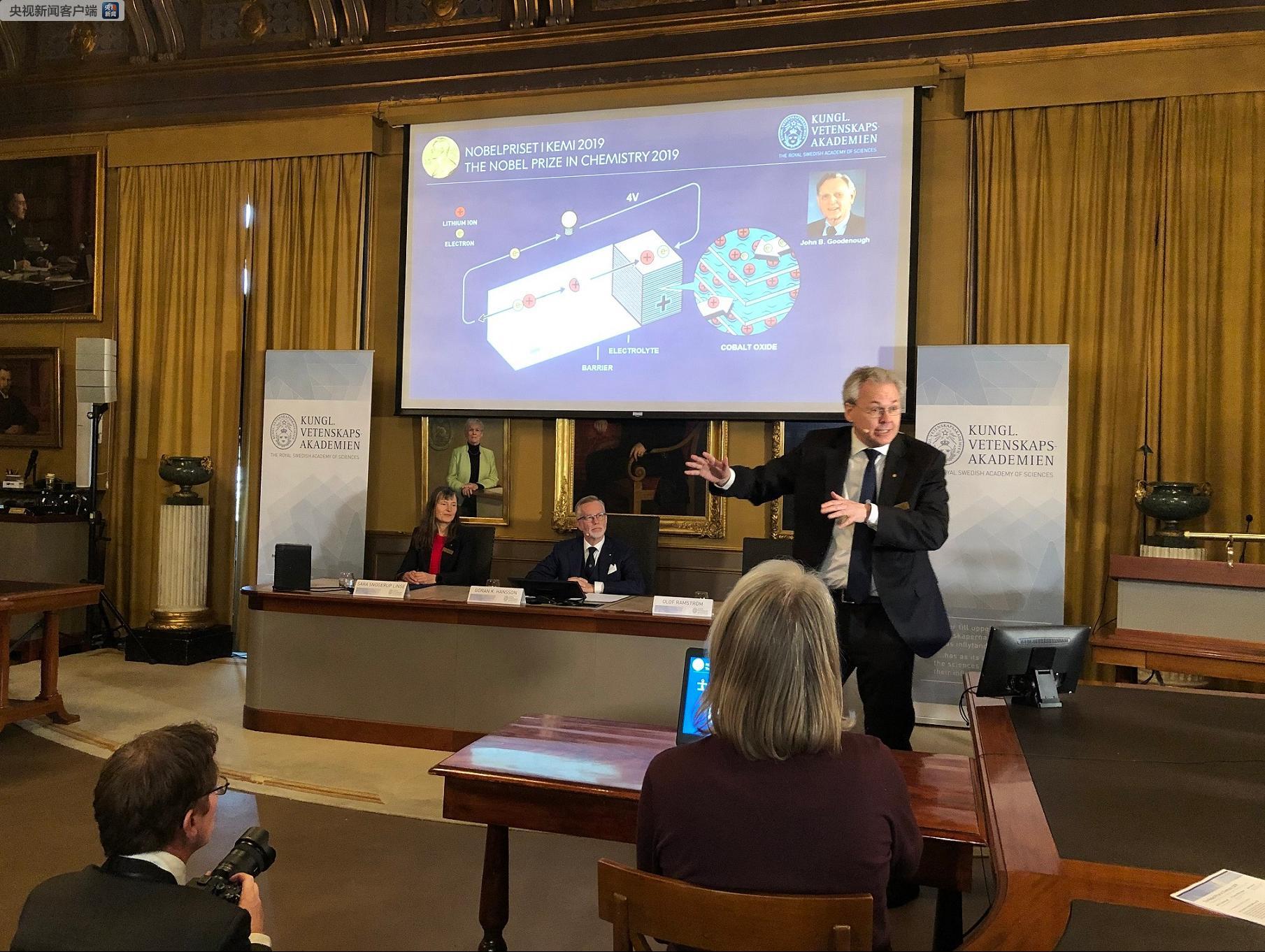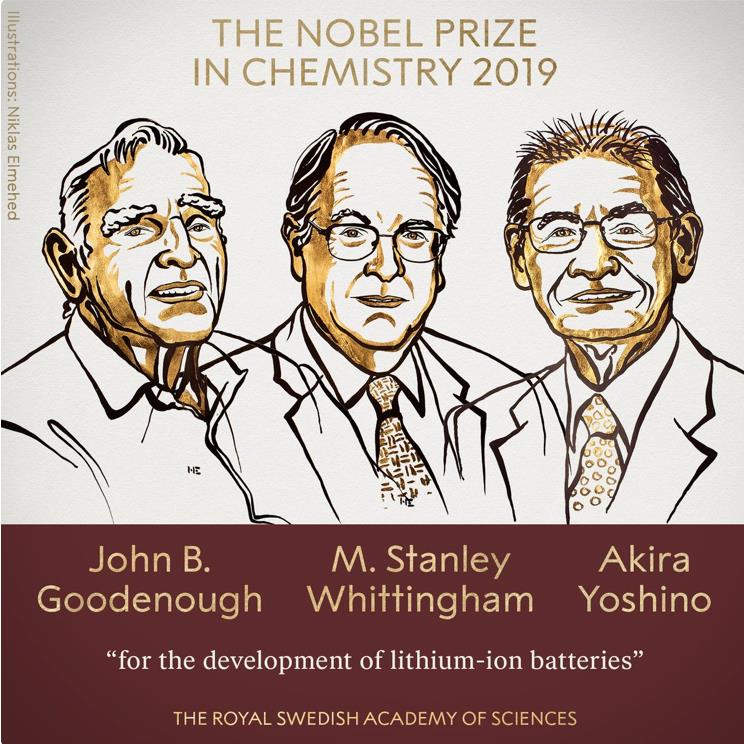CCTV News:On the morning of October 9, local time in Sweden, the Royal Swedish Academy of Sciences announced in Stockholm that it would award the 2019 Nobel Prize in Chemistry to John B. Goodenough, M. Stanley Wittingham and Yoshino Akira in recognition of them."developing lithium-ion batteries"The contribution of. They will share the prize of 9 million Swedish kronor (about 6.5 million yuan).

Lithium-ion batteries have completely changed our lives and are used in all applications, from mobile phones to laptops and electric cars. Through the work of the winners, this year’s Nobel Prize winner in chemistryIt laid the foundation for a wireless and fossil fuel-free society..
In the early 1970s, M. Stanley Wittingham, who won this year’s Nobel Prize in Chemistry, was developing.The first functional lithium batteryAt that time, the great power of lithium was used to release its external electrons.
John B. Goodenough, winner of the 2019 chemistry prize.The potential of the lithium battery is doubled.It creates suitable conditions for more powerful and useful batteries.
This year’s Nobel Prize winner in chemistry, Akira Yoshino, succeeded inPure lithium was removed from the battery.Instead, it is based on lithium ions that are safer than pure lithium. This makes the battery feasible in practice.

John B. Goodenough isFather of lithium batteryHe made the lithium battery smaller, larger and more stable in use, thus realizing commercialization and at the same time starting the process of portable electronic equipment. At present, he is Professor department of mechanical engineering of the University of Texas at Austin, USA. At the age of 97, he is a famous solid physicist, the inventor of cathode materials of lithium cobaltate, lithium manganate and Ferrous lithium phosphate, and one of the founders of lithium-ion batteries. He designs new materials by studying the relationship between chemistry, structure and solid electron/ion properties, and solves material science problems. Sony produced the world’s first commercial lithium battery after adopting Goodenough theory in 1991. Since then, mobile phones, cameras, hand-held cameras and even electric vehicles have entered the era of portable new energy.
M Stanley Whitingham is currently a professor of chemistry and director of the Institute of Materials and the Department of Materials Science and Engineering at Binghamton University, State University of New York.
Akira Yoshino, a Japanese chemist, is currently a researcher at Asahi Kasei and a professor at meijo university. He was commended by Zi Zi. Yoshino is the inventor of modern lithium-ion batteries, and has won the highest honor in engineering, the Global Energy Award and the Charles Stark Draper Award. (CCTV reporter Hao Xiaoli)